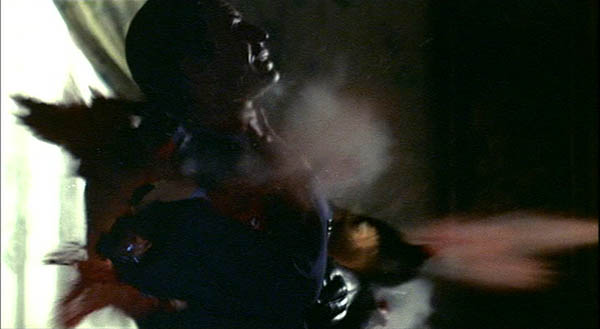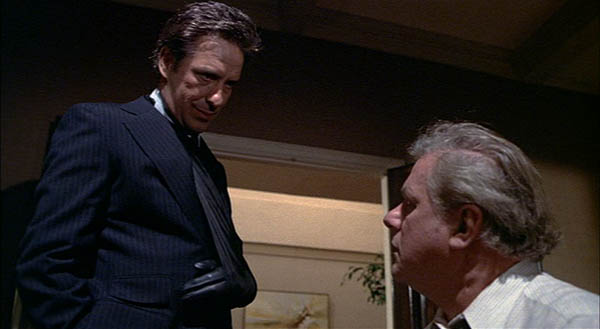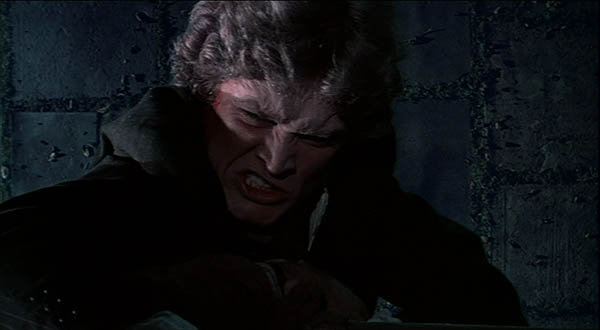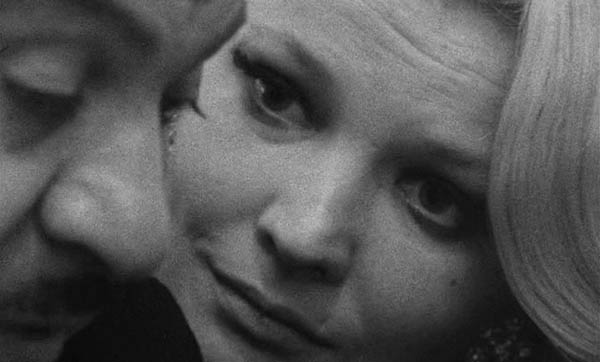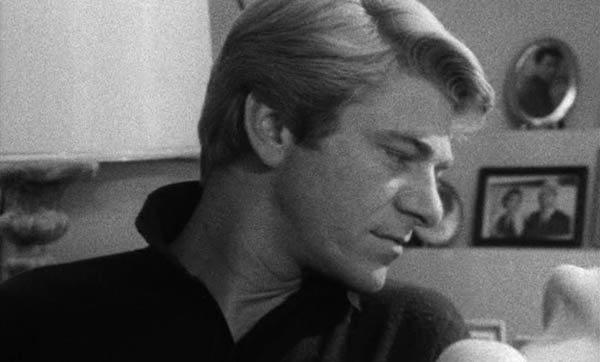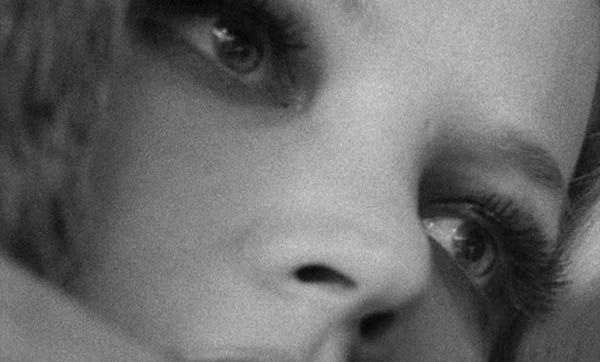Took a couple weeks off the blog, now back to the SHOCKtober backlog. Got a new visual theme to support larger images (and incidentally phones/tables/etc) so beginning with this post, screenshots are no longer limited to 640px wide. Party!
After enjoying The Tenant, I decided to rewatch the rest of Polanski’s “apartment trilogy:” this and Repulsion, both of which I’d seen on cable so long ago that I may as well have never seen them at all before now. Obviously these movies were the highlight of Shocktober this year, alongside Hellraiser, Scanners and Possession. After not paying him much attention until 2011, I’m a big Polanski fan. All three apartment movies have terrific peephole shots, and this and Repulsion both have a dream sequence in which a ticking clock is the only sound. I found out in the extras that Polanski threw off the lipsynch in another dream sequence on purpose – I’d been annoyed at the technical flaw but he meant it to add to the unreal atmosphere.

Omaha native Rosemary (Mia Farrow) and husband Guy (John Cassavetes, same year as Faces) shop for an NYC apartment with realtor Elisha Cook (Phantom Lady, The Killing), settle on a place with nosy neighbors whose previous tenant passed away just a few days before. Mia’s first friend (Victoria Vetri, Playmate of the Month right before this filmed) jumps to her death soon after they move in. Already this is sounding like The Tenant, but instead of the new tenants going slowly insane, aspiring actor Guy makes a deal with the intrusive Castevet couple next door to have his wife impregnated with the antichrist.

Collateral damage: the suicide woman, who it’s assumed was meant to be the demon child’s host before Rosemary came along, Hutch, the couple’s best friend before the whole demon pregnancy thing (Maurice Evans, a lead ape the same year in Planet of the Apes), Guy’s competition for a major acting role (he goes inexplicably blind). I think Rosemary’s doctor, the great Charles Grodin (as opposed to the doc the Castevets choose for her, Ralph Bellamy of The Wolf Man), is allowed to live.

Even without the demon baby, moving in next door to the Castevets seems like horror movie material – this may be what led to The Tenant. Paradoxically, the crazy Castevets also keep the mood light, injecting humor into the horror. Ruth Gordon won an oscar (beating the star of Cassavetes Faces), would star in Harold and Maude a few years later, and Sidney Blackmer played Leslie Nielsen’s dad in Tammy and the Bachelor. The ending is intense, though – Rosemary discovering the whole conspiracy, walks into a room with her demon baby, her traitor husband and a bunch of revelers yelling “hail Satan,” and instead of hurling herself out the window or burning the place to the ground, she approaches the cradle and starts to rock it gently.

Polanski’s first American film after Repulsion and two others in England. There was a sequel! It starred Pontypool‘s Stephen McHattie as the demon kid now in his twenties, with Patty Duke and Ray Milland. Mia Farrow starred in Secret Ceremony, another disappearing child/hysterical mom movie the same year as Rosemary’s.
Author Ira Levin in 2003:
Lately, I’ve had a new worry. The success of Rosemary’s Baby inspired Exorcists and Omens and lots of et ceteras. Two generations of youngsters have grown to adulthood watching depictions of Satan as a living reality. Here’s what I worry about now: if I hadn’t pursued an idea for a suspense novel almost forty years ago, would there be quite as many religious fundamentalists around today?















